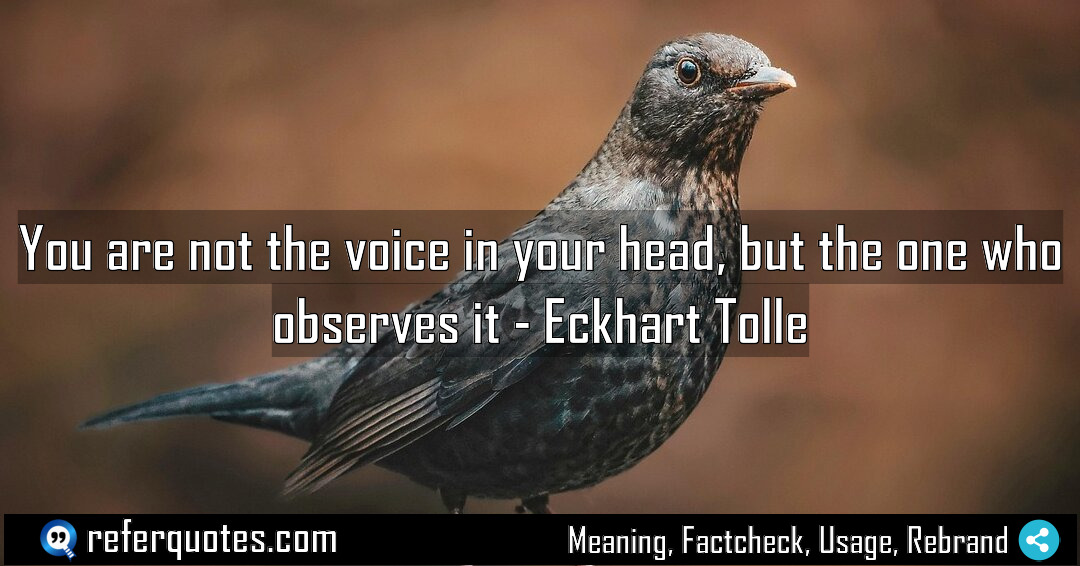You know, that idea “You are not the voice in your head, but the one who observes it” is a total game-changer. It’s the key to stopping that endless mental chatter and finding some real peace. Once you get this, it changes everything.
Share Image Quote:Table of Contents
Meaning
Your true self isn’t your thoughts; it’s the conscious awareness *behind* them. You are the silent witness, not the noisy commentator.
Explanation
Okay, let me break this down like I would for a client. We all have this constant stream of thoughts, right? The “voice” that’s judging, worrying, planning, rehashing the past. For most of us, we’re completely fused with that voice. We believe we *are* it.
But here’s the secret Tolle points to. If you can hear the voice… who is the one listening? There has to be a you that is separate from the thought-stream to even be aware of it. That’s the “observer.” It’s a deeper dimension of consciousness. And the moment you realize, “Oh, I’m the space in which these thoughts are happening,” you get a sliver of freedom. The thought loses its power over you. It’s not about stopping the thoughts, by the way. It’s about changing your relationship to them.
Quote Summary
| Context | Attributes |
|---|---|
| Original Language | English (3668) |
| Category | Spiritual (229) |
| Topics | consciousness (5), observation (4) |
| Literary Style | concise (408), didactic (370) |
| Emotion / Mood | calm (491), peaceful (147) |
| Overall Quote Score | 86 (262) |
Origin & Factcheck
This is pure Eckhart Tolle, straight from his 1997 book, The Power of Now. It came out in the US and became a foundational text of modern spirituality. You sometimes see similar ideas in mindfulness or Buddhism, but this specific phrasing is his.
Attribution Summary
| Context | Attributes |
|---|---|
| Author | Eckhart Tolle (45) |
| Source Type | Book (4032) |
| Source/Book Name | The Power of Now: A Guide to Spiritual Enlightenment (45) |
| Origin Timeperiod | Contemporary (1615) |
| Original Language | English (3668) |
| Authenticity | Verified (4032) |
Author Bio
Eckhart Tolle, born in Germany in 1948, became widely known after his transformative insights at age 29 led him to teach about presence and inner stillness. He later settled in Vancouver and wrote The Power of Now and A New Earth, which topped bestseller lists and inspired millions. He collaborates with major platforms, hosts retreats, and shares teachings through his online portal. The
| Official Website | Facebook | X| Instagram | YouTube
Where is this quotation located?
| Quotation | You are not the voice in your head, but the one who observes it |
| Book Details | Publication Year/Date: 1997; ISBN: 978-1577314806; Last Edition: New World Library Edition (2004); Number of Pages: 229 |
| Where is it? | Chapter 1: You Are Not Your Mind, Page 25 |
